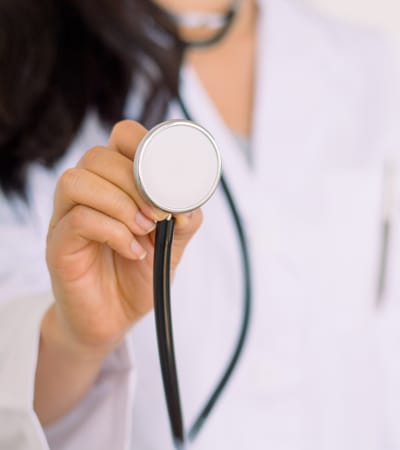What is C. Difficile Colitis?
According to experts, C. difficile colitis is an infection that is caused by a type of bacteria called Clostridium difficile. C. difficile colitis can vary in severity; in some cases, it causes a bout of diarrhea, but sometimes, it can lead to a serious colon infection, which can be life-threatening.
Symptoms of C. Difficile Colitis
C. difficile colitis can cause a variety of symptoms, ranging from mild to severe. Typically, symptoms begin five to 10 days after a person starts using an antibiotic medication, but they can appear as soon as a day after, or as long as two months after beginning an antibiotic.
In mild to moderate cases, C. difficile colitis symptoms include the following:
- Mild abdominal cramps
- Tenderness in the abdomen
- Watery diarrhea at least three times per day for two or more days
In severe cases, symptoms of C. difficile colitis include:
- Severe pain and cramping in the abdomen
- Elevated heart rate
- Watery diarrhea occurring as many as 10-15 times daily
- Blood or pus in the stool
- Lack of appetite
- Fever
- Nausea
- Dehydration
- Weight loss
- Swelling in the abdomen
- Elevated white blood cell count
- C. difficile colitis can even cause life-threatening complications, such as kidney failure, enlarged colon, severe intestinal inflammation, and sepsis.
Causes of C. Difficile Colitis
There are several potential causes of C. difficile colitis, but one common cause of this condition is antibiotic use. When a person uses antibiotics, these medications kill some of the healthy bacteria found in the body, which can cause C. difficile to grow quickly.
Other risk factors for C. difficile colitis include:
- Staying in a healthcare facility, such as a hospital or nursing home
- Having abdominal surgery
- Having a weakened immune system
- Having serious medical conditions like colorectal cancer or inflammatory bowel disease
- Being age 65 or older
- Having had C. difficile colitis in the past
- How is C. Difficile Colitis Treated?
If you think you may have C. difficile colitis, it is important to seek treatment, because this condition can cause complications such as kidney failure, bowel perforation, and even death if left untreated.
The first part of treatment for C. difficile colitis is to stop taking the antibiotic that triggered the infection. While it may seem counterintuitive, treatment for C. difficile colitis usually involves taking another antibiotic.
In severe cases of C. difficile colitis, surgery may be necessary to remove the unhealthy portion of the colon. If C. difficile colitis is recurring, a doctor may perform a procedure called fecal microbiota transplant, in which stool from a healthy donor is implanted in an infected colon.
Treatment is important to prevent complications from C. difficile colitis, so you should seek medical care promptly if you have had watery diarrhea three or more times per day for two days or symptoms like bloody stool or severe abdominal cramping.
Applicable Procedures
Can you die from C. difficile colitis?
In some cases, C. difficile colitis is mild and causes a quick bout of diarrhea. Other times, it is severe and can cause life-threatening complications like kidney failure, enlarged colon, or sepsis.
Is treatment necessary for C. difficile colitis?
Since C. difficile colitis can lead to life threatening complications in some cases, it is important to seek treatment if you think you have symptoms of this condition. If you have had watery diarrhea for two days, you should seek medical care as soon as possible.
How is C. difficile colitis treated?
The first line of treatment for C. difficile colitis is typically an antibiotic. If symptoms are serious, you may need surgery to remove part of the colon, or a fecal microbiota transplant, in which you receive stool from a healthy donor to be implanted into your colon.
Common Symptoms
- “I had watery diarrhea multiple times per day for days on end.”
- “About a week after taking an antibiotic for an ear infection, I noticed that my stomach was tender, and I started to have diarrhea repeatedly throughout the day.”
- “After I went through a course of antibiotics, I suddenly developed severe cramps and stomach pain, and I was having diarrhea hourly throughout the day.”

















